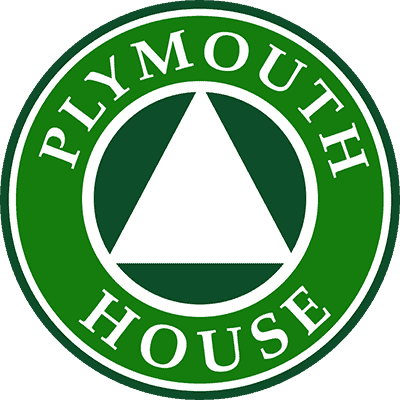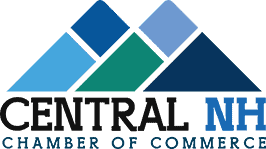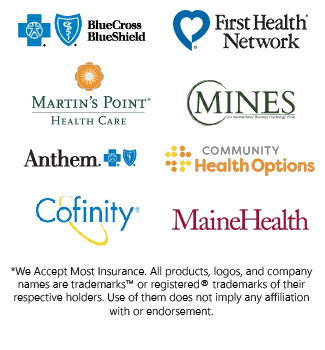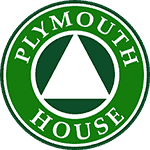Addiction Treatment & Drug & Alcohol Rehab Near Laconia, NH
The Plymouth House is a specialized rehab center in New Hampshire that provides comprehensive treatment to individuals struggling with addiction and its challenges. We offer a wide range of therapeutic approaches and services, including medical detox, behavioral therapy, group and family therapies, and other evidence-based strategies. Our levels of care include inpatient and partial hospitalization programs and extended outpatient care after intensive treatment.
If you are seeking professional help for the misuse of alcohol, illicit drugs, or prescription medications, we can help you get started reclaiming your health and the life you deserve.
Drug Detox & Addiction Treatment Services Near Laconia, NH
Our New Hampshire rehab center offers detox and addiction treatment services for many different substances, including alcohol, illicit drugs, opioids, stimulants, and various misused prescription medications.
Disorders and addictions we treat at our New Hampshire treatment facility include:
Alcohol Detox
Alcohol is one of the few substances that can lead to potentially lethal complications during withdrawal. Delirium tremens, a condition associated with profound confusion, hallucinations, tremors, seizures, and psychosis, can develop. These effects can be life-threatening and result in long-term damage to one’s health. Other risks include an irregular heart rate, respiratory distress, dehydration, and electrolyte imbalances.
For this reason, people with alcohol use disorder who are at risk of severe alcohol withdrawal symptoms should not attempt to quit drinking alone. Medically supervised alcohol detox helps prevent complications.
We Are Here For You
Let Us Help You Heal
Our Drug & Alcohol recovery services are second to none.
Learn how we can help by speaking with one of our Treatment Advisors today.
Prescription Drug Detox
Prolonged use of prescription medications like opioids, stimulants, and benzodiazepines (benzos) often requires medical detoxs.
Opioids — prescription pain medications such as morphine, hydrocodone, and oxycodone — are often prescribed to treat mild-moderate short-term pain. When taken long-term for chronic conditions, it can be difficult to stop. Medically monitored opioid withdrawal treatment includes pharmaceutical interventions to ease symptoms.
Prescription stimulants are commonly used to address symptoms of attention deficit hyperactivity disorder (ADHD) and include amphetamines and methylphenidate. Withdrawal is not typically life-threatening, but its effects can be severe and highly uncomfortable. Clinical supervision, medication, and therapy can help reduce symptoms and make stimulant detox more manageable.
As with alcohol, benzodiazepine withdrawal can be dangerous and requires medical supervision. Abruptly stopping benzos like alprazolam (Xanax) and diazepam (Valium) causes agitation, tremors, heart palpitations, and seizures. Medically supervised benzo detox may include medication to help prevent seizures and ease withdrawal symptoms.
Illicit Opioid Detox
Illicit opioids work similarly to prescription opioids and can vary in potency and intensity of effects. They include heroin, street fentanyl, and others. Heroin withdrawal is notoriously unpleasant and sometimes painful, resulting in severe flu-like symptoms such as aches and pains, nausea, vomiting, diarrhea, restlessness, and insomnia.
Fentanyl, once developed and intended to be a powerful prescription painkiller and sedative, can be found illicitly on the street as a product of drug cartels and overseas manufacturers. Fentanyl is 50 times more potent than heroin and, as such, may require a more intensive detox.
Illicit Stimulant Detox
Cocaine and methamphetamine (meth) are street drugs that elicit effects similar to those of prescription amphetamines and other medications used to treat ADHD. Withdrawal is unlikely to lead to life-threatening complications, but it can be severe and uncomfortable.
Clinically supervised stimulant detox can provide the support you need in the early days of treatment.
Synthetic Drug Detox
Synthetic street drugs include manufactured substances like K2, Spice, ecstasy, LSD, and DMT. K2 and Spice are synthetic cannabinoids that can have unpredictable effects. LSD, DMT, and MDMA have hallucinogenic properties, and ecstasy is both a hallucinogen and a stimulant.
Depending on the nature and severity of the effects, interventions for these types of drugs include various medications intended to relieve significant and acute withdrawal symptoms.
Our Drug & Alcohol Treatment Services Include
Our Levels of Care for Substance Use Recovery
The Plymouth House offers residential inpatient, Partial Hospitalization Programs (PHP), and extended care programs.
Residential treatment involves 24/7 care and medical supervision in a supportive setting for up to four weeks. Therapeutic approaches include behavioral therapy, group therapy sessions, and recreational activities. Inpatient programs are typically appropriate for those who would benefit from intensive treatment and a high level of support.
PHP is a day program that consists of several hours of treatment six days a week, with evenings off. The therapies and services provided are similar to inpatient treatment, but participants have more flexibility. PHP is suitable for individuals with less severe dependencies or who are transitioning from a higher level of care.
Our extended care program allows individuals to continue visiting our campus for ongoing therapy and to attend meetings, groups, and workshops. While participating in this program, guests live off-site, often in a sober living home with a supportive community to help them confidently transition back to their everyday lives.
Our addiction treatment programs include a wide range of therapies and strategies developed to address substance misuse from multiple angles.
Substance use treatment therapies we offer include:
Individual therapy, or psychotherapy, consists of one-on-one sessions between a guest and a licensed behavioral health professional in a safe, comfortable setting. Treatment involves cognitive behavioral therapy (CBT), a clinically proven approach that helps individuals confront their challenges, thoughts, feelings, and behaviors and make positive changes.
Group therapy is a form of psychotherapy in which a small group of individuals meet regularly under the guidance of a licensed therapist or other trained professional. The group setting offers a supportive environment where members share their challenges, struggles, and experiences.
Family therapy, another type of psychotherapy, involves therapists working with families to promote healthy communication and resolve interpersonal conflicts. This therapy focuses on the whole family system by addressing their unique dynamics and challenges.
Ready To Begin Your Drug & Alcohol Treatment?
We Offer A Safe & Effective Program
Don’t let Drug & Alcohol addiction control your life.
Call us today and let’s get you started on the path to a better you.
Drug & Alcohol Use Statistics in Laconia, NH
Laconia, New Hampshire, is a small community located in Belknap County. The following statistics demonstrate how substance misuse affects the community near Laconia.
In January 2023, the New Hampshire Drug Monitoring Initiative reported that Belknap County experienced a total of 3.38 emergency prescription drug-related overdose/misuse incidents per 10,000 persons, followed by 2.09 for opiates and 1.61 for psychoactive drugs/meth.
Belknap County also has higher rates of heavy drinking than the state and national averages, at 8.8% for females and 12.3% for males.
According to the 2021 National Survey on Drug Use and Health, rates of substance use disorder among New Hampshire residents are:
- 16% reported a past-year substance use disorder
- 12% reported a past-year alcohol use disorder
- 2.9% reported a past-year illicit drug use disorder
- 1.34% reported a past-year opioid use disorder
- 1.19% reported a past-year pain reliever use disorder
What To Look for in a Local Addiction Treatment Center Near Laconia
It’s vital to choose an addiction rehab center that offers the treatments, services, and features required to meet your unique needs and preferences.
Qualities and features to look for in a treatment center include:
- Accreditation by a reputable organization, such as The Joint Commission, and licensed by the state of New Hampshire
- Experienced and qualified team of experienced and licensed addiction specialists, therapists, and clinical staff
- Evidence-based therapeutic approaches consisting of a combination of psychotherapies and other interventions
- Personalized treatment plans developed to meet the unique needs of each individual
- Medical detox to ensure guests experience a safe and comfortable withdrawal
- Dual-diagnosis treatment to address co-occurring behavioral health conditions, such as depression and anxiety disorders
- Family involvement, such as family therapy and educational programs to address the individual and their loved ones
- Aftercare and relapse prevention strategies that provide support for guests gradually integrate back into their daily lives
Begin Healing Now!
Have A Call With One Of Our Treatment Advisors
Don’t Suffer Any Longer
Why Choose The Plymouth House for Your Recovery?
If you’ve found yourself in the grip of drug or alcohol addiction and are looking for a serene retreat in a comfortable, supportive environment, we encourage you to reach out to The Plymouth House.
Our knowledgeable team of medical and clinical professionals will guide you through the recovery process and help you overcome your addiction and the challenges you face. Contact us today for a free, no-obligation health insurance benefits check and learn more about our comprehensive programs and supportive care.
Get Started Now
Give us a call 24/7
(888) 693-1927















